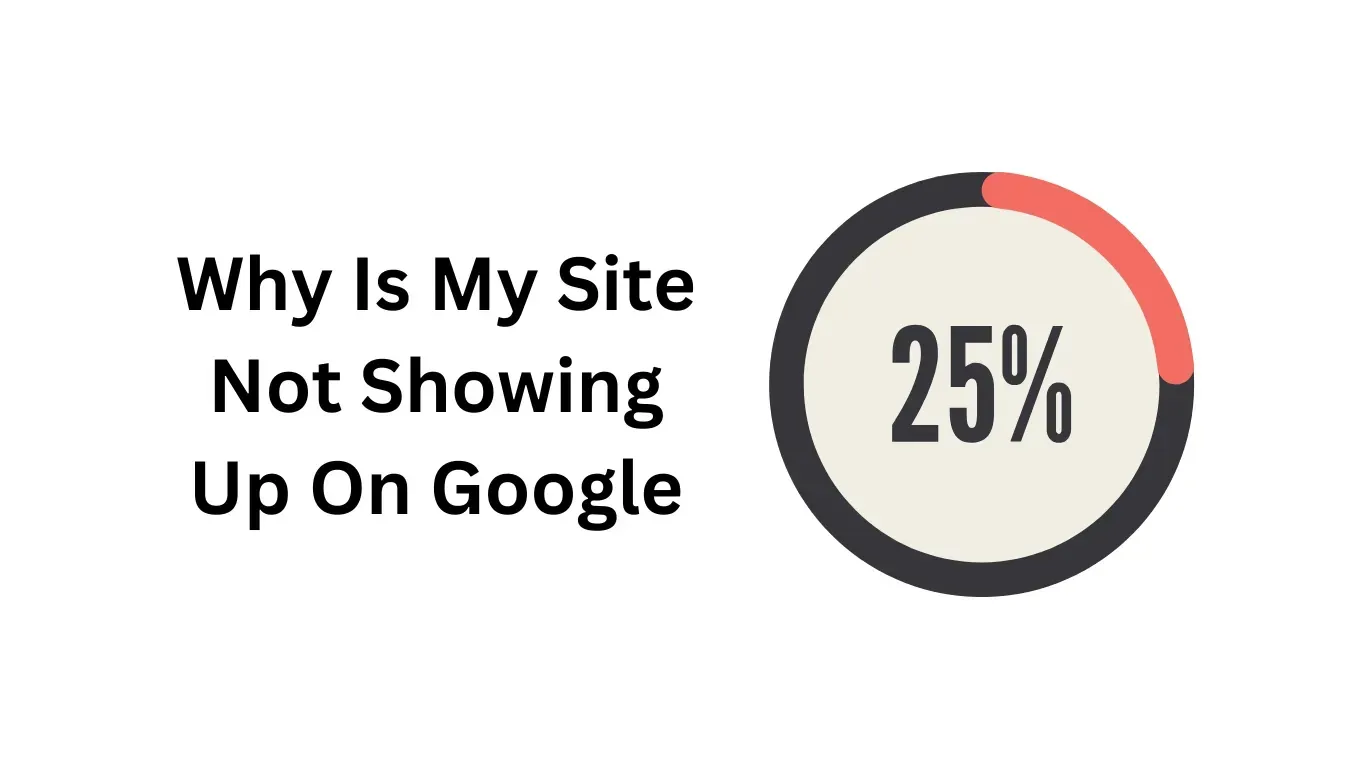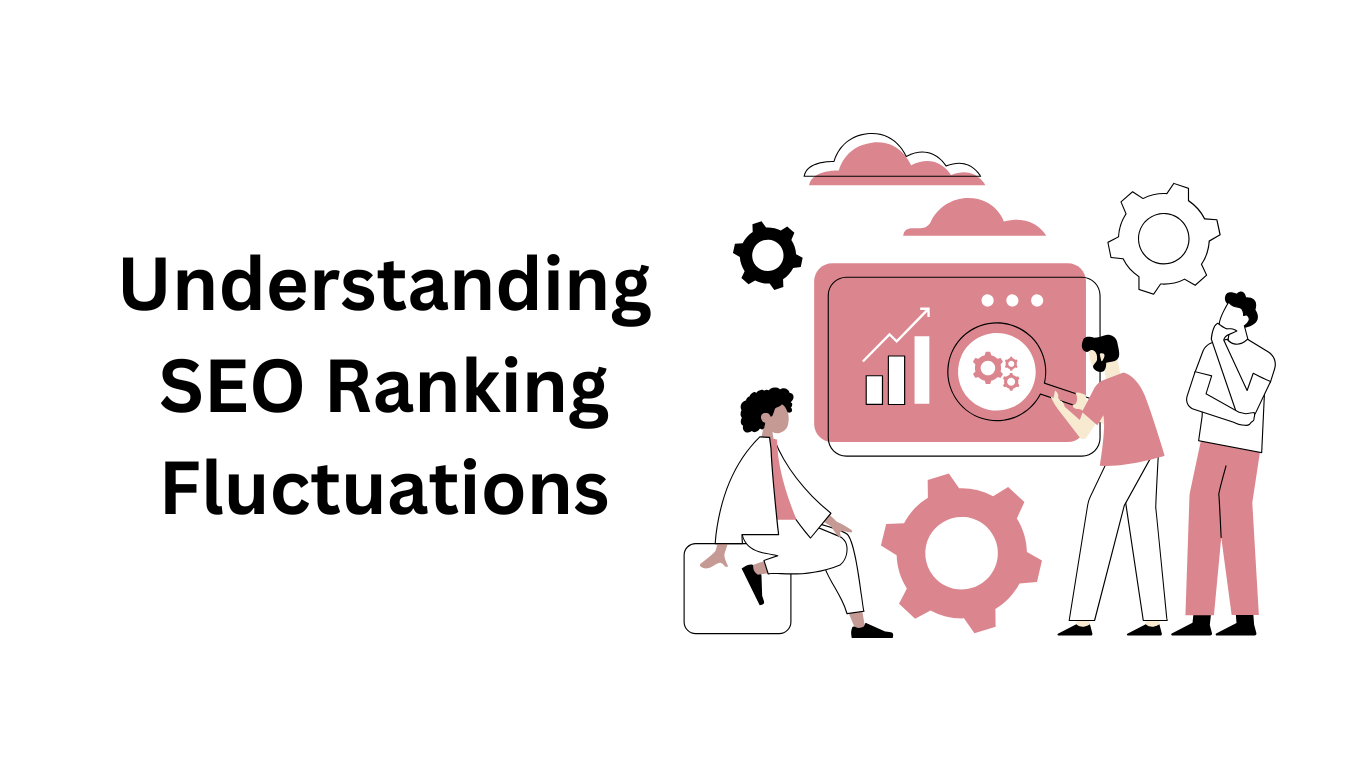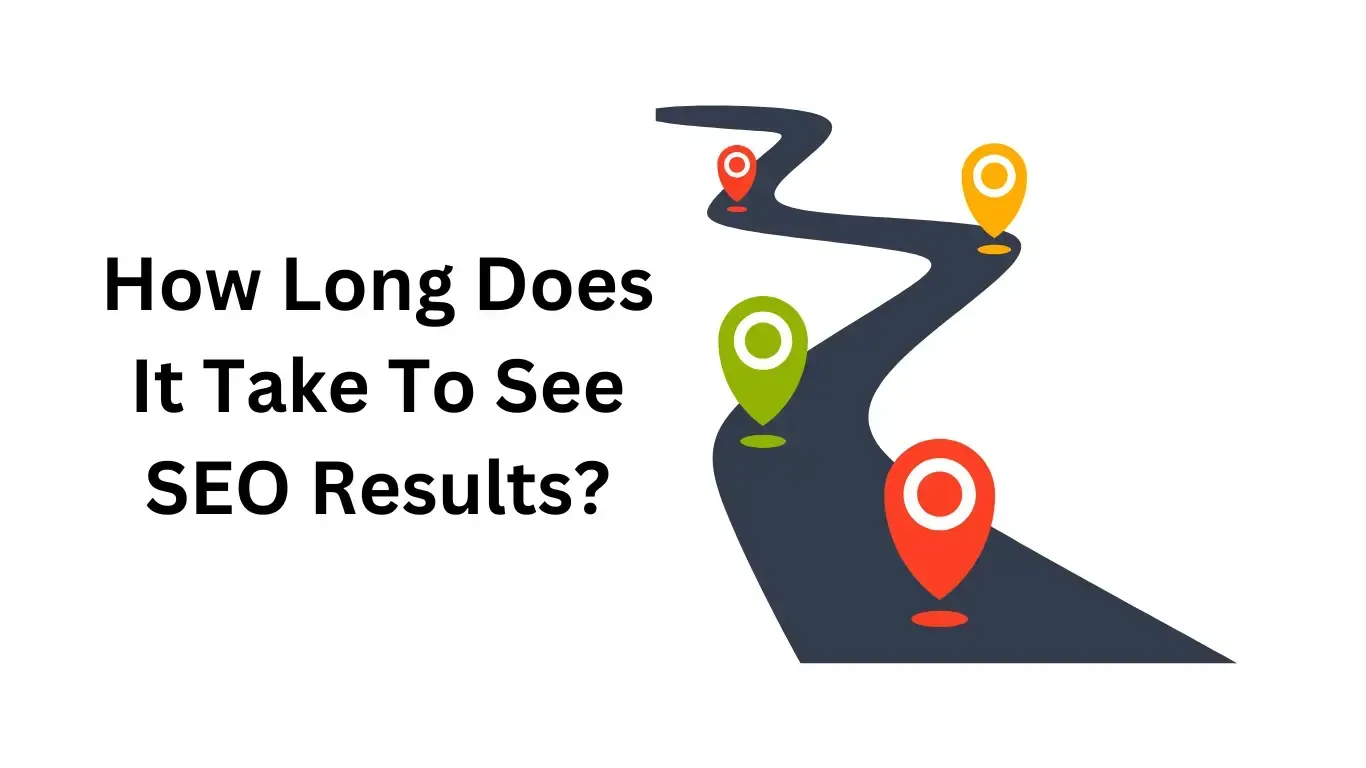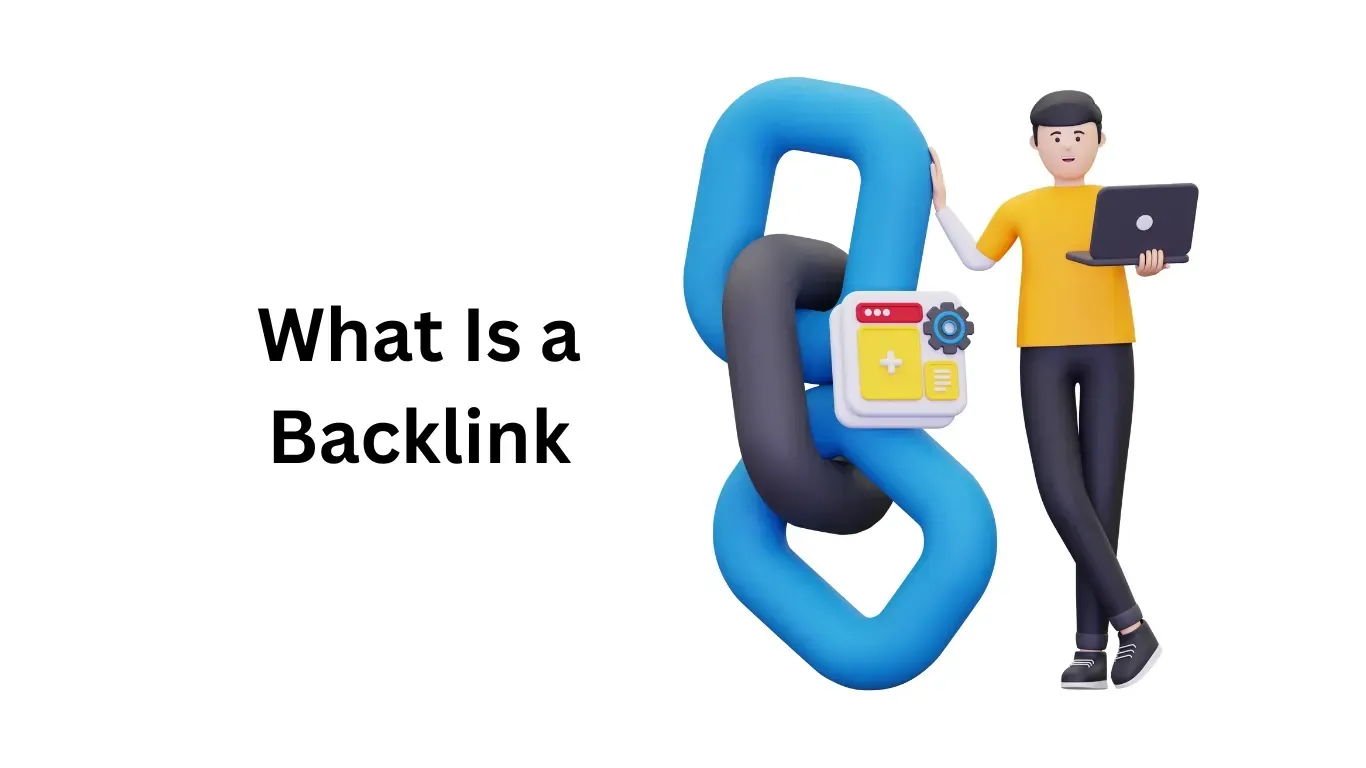ChatGPT Search – Disrupting How We Do Search
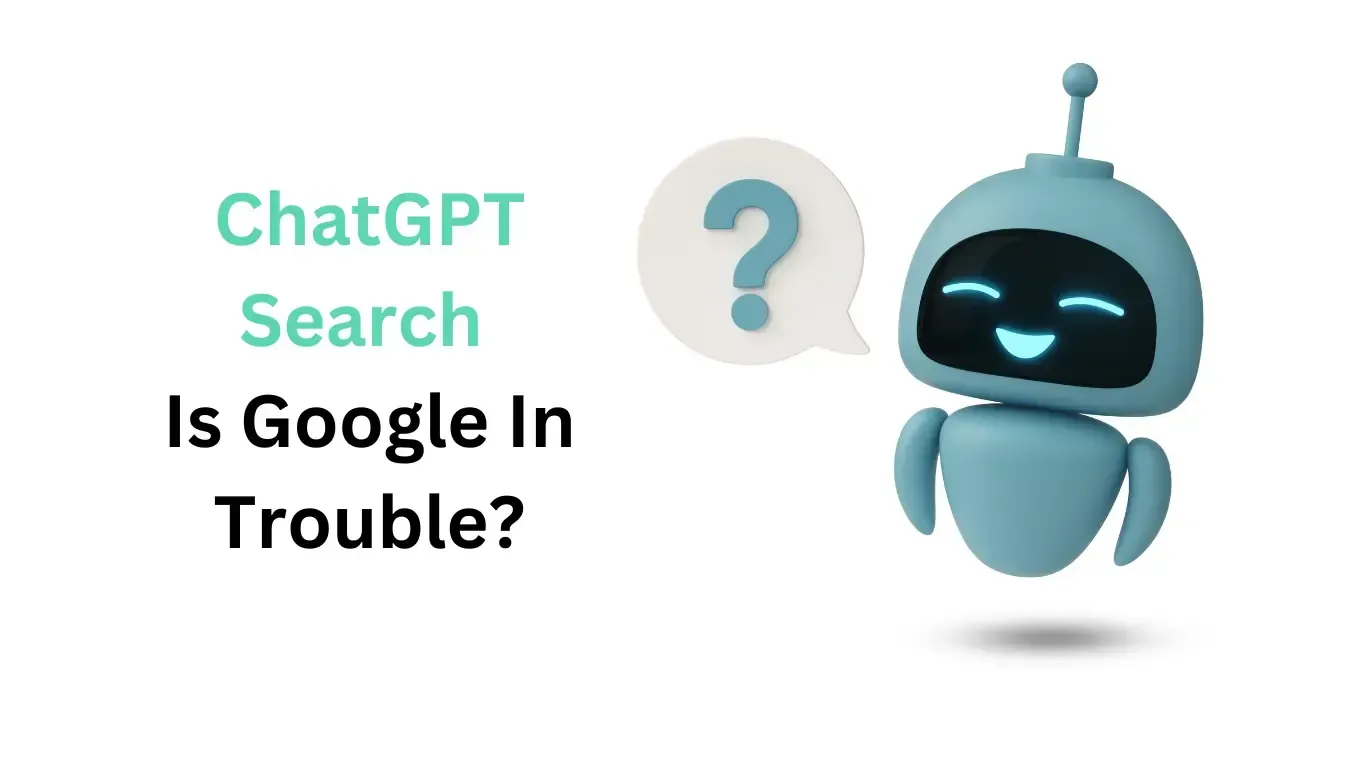
Let’s be real—search engines are our modern-day heroes. Whether you’re Googling a last-minute recipe, finding out if it’ll rain on your parade, or trying to settle a trivia debate, search engines have had our backs for decades.
But the way we search is about to change, or already has started to change, dramatically.
Enter ChatGPT Search, OpenAI’s new brainchild that’s reimagining what a search engine can be. It’s conversational, intuitive, and honestly, pretty cool.
Think of it as having a super-smart friend who can answer almost anything—without the "Let me Google that for you" attitude.
So, is this the end of Google’s reign? Or just a flashy new tool? We are going to give you our thoughts, so let’s unpack everything you need to know—and why it might just change the game for good.
What is ChatGPT Search?
If traditional search engines are like hunting through a library for a book, ChatGPT Search is like having a personal librarian who not only finds the book for you but also highlights the juicy parts and explains the tricky bits.
That’s ChatGPT in a nutshell. It can act like it’s a search engine, yes, but it’s also so much more.
This feature integrates OpenAI’s conversational AI capabilities with real-time web search, allowing users to give you direct, easy-to-digest answers to your questions. No more sifting through pages of links or dodging ads that scream “BUY THIS!” It gets straight to the point.
For example, if you ask, “What’s the best way to bake sourdough bread?” ChatGPT doesn’t just send you a recipe link. It gives you a step-by-step guide, troubleshooting tips, and maybe even a reminder to feed your sourdough starter (trust us, you’ll forget).
Here’s a fun fact to put things in perspective: 26% of U.S. search engine users were frustrated by having to browse through different search results to find correct information, and 22% found it challenging to determine the most appropriate search terms to enhance result accuracy.
This highlights a growing demand for smarter, more intuitive search tools—like ChatGPT Search—that simplify the process and deliver accurate, user-focused results without the usual headaches.
But is not all great. From our own due diligence we found that ChatGPT Search does provide incorrect results, so we still advise to do your own research.
How Does ChatGPT Search Work?
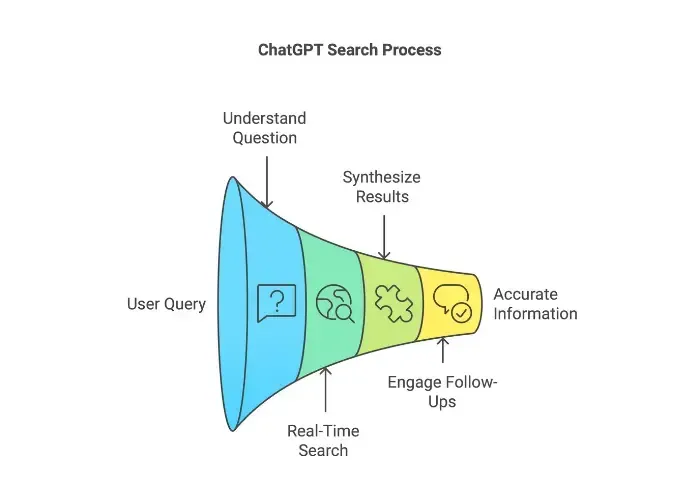
Okay, so it’s smart, but how does it actually work?
At its core, ChatGPT’s search feature combines cutting-edge natural language processing (NLP) with a powerful web search engine. This combination allows it to understand questions like a human would, then search the web in real time to provide accurate, current information.
Let’s pull back the curtain and see what’s happening behind the scenes:
Understanding Your Question
You can speak to ChatGPT naturally, without worrying about crafting perfect search terms. You don’t need to type robotic queries like “weather NYC tomorrow.” Instead, you can ask ChatGPT, “Hey, what’s the weather like in New York tomorrow?” and it’ll understand exactly what you mean. No guessing games, just answers.
Searching the Web in Real Time
ChatGPT doesn’t rely solely on pre-trained knowledge—it searches the web live to pull in the most up-to-date information. Whether you’re checking stock prices, sports scores, or trending news, it’s pulling in real-time data to keep you in the loop.
This is good news for you, if you are writing great content that is relevant and up to date, you have a REAL good shot of getting featured as one of the answers on the snippets.
Synthesizing Results
Instead of throwing 10 links at you and saying, “Good luck,” ChatGPT consolidates everything into one cohesive response. And if you’re curious, it even tells you where it got the information, so you can dig deeper if you’d like.
Engaging Conversational Follow-Ups
Didn’t get exactly what you were looking for? No problem. Ask a follow-up question, and ChatGPT adapts and continues to dig further. So, is somewhat like having a conversation, not a Q&A session.
What Sets ChatGPT Search Apart?
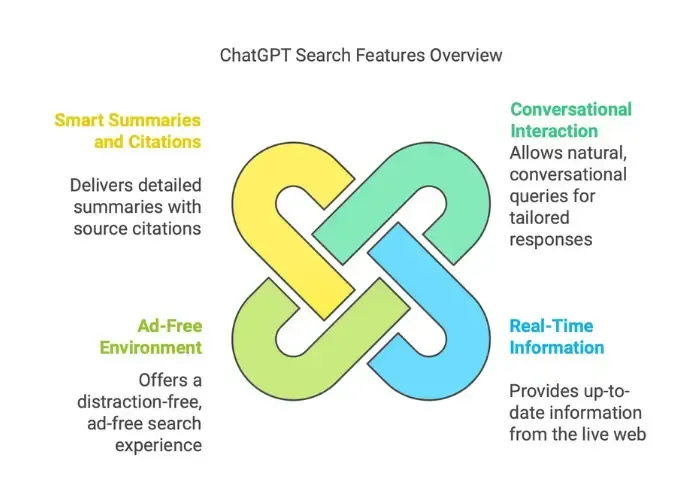
New Paragraph
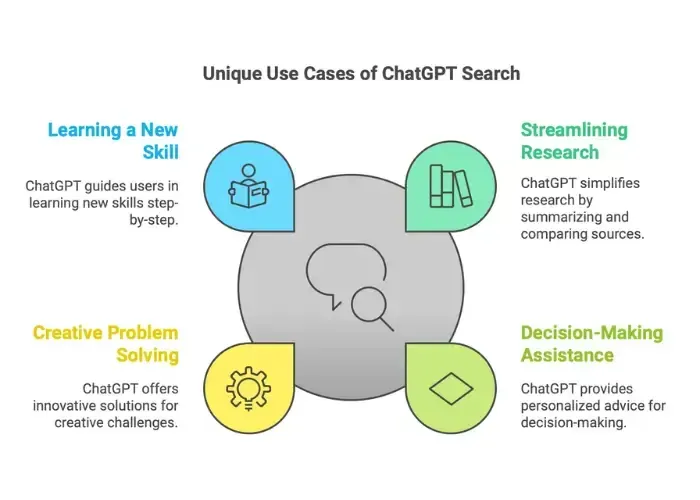
The appeal of ChatGPT Search goes beyond its ability to answer questions—it’s how it handles specific scenarios that sets it apart. Let’s talk about some specific scenarios where Search absolutely crushes it:
Streamlining Research
Students and professionals can save hours by using ChatGPT to summarize dense material. Instead of hopping between 10 tabs, ChatGPT gives you summaries, comparisons, and follow-ups in one conversation. It’s a multitasker’s dream.
Also, you can even have it produce a question bank if you want to simulate different test before you face the real thing.
Decision-Making Assistance
Need thoughtful, personalized advice? From choosing between laptops to deciding on a vacation spot, ChatGPT simplifies the decision-making process by providing comprehensive comparisons and personalized recommendations.
Creative Problem Solving
Need a gift for your hard-to-shop-for friend? Or maybe you’re brainstorming a themed party idea? ChatGPT thinks outside the box in ways a regular search engine just can’t.
Learning a New Skill
Whether you’re learning to code, cook, or craft, ChatGPT can guide you through the process step-by-step and suggest resources to level up.
ChatGPT Search vs. Google

Google has been the gold standard for so long that it’s hard to imagine a serious challenger. And to be honest, it isn’t going anywhere anytime soon. It’s been the king of search for decades, and for good reason.
But ChatGPT is more than just a competitor—it’s an entirely new way of thinking about search.
Here’s how they stack up:
Google – The King of Speed and Scale
Pros:
- Google indexes a staggering amount of content and delivers lightning-fast results.
- It’s versatile, covering everything from shopping to mapping to video streaming.
- It integrates seamlessly with tools like Gmail, Drive, and Calendar.
Cons:
- Results often feel cluttered, with ads and sponsored links dominating the top spots.
- Users have to sift through multiple sites to find exactly what they’re looking for.
ChatGPT Search – The Rising Star
Pros:
- Delivers precise, conversational answers instead of lists of links.
- No ads, no distractions—just pure information.
- Adapts to your specific needs, offering tailored recommendations and actionable insights.
Cons:
- Not as fast or comprehensive as Google when it comes to niche topics.
- Still evolving, meaning it occasionally misses the mark on complex queries.
Think of it this way, it’s not about replacing Google—it’s about offering a smarter, more personal way to search.
What’s Next for ChatGPT Search?
OpenAI has big plans for ChatGPT Search. As it rolls out to more users (it’s currently available to Plus subscribers and is expanding to free users in phases), OpenAI is working on partnerships with news outlets and data providers to ensure that its information is not only accurate but also comprehensive.
Future updates could include:
Multimedia Integration: Imagine getting maps, videos, and images alongside your answers.
Enhanced Contextual Understanding: Tackling even more nuanced or complex queries with better contextual awareness.
Task Automation: Booking flights, setting up appointments, or even shopping—directly within ChatGPT.
Should You Give ChatGPT Search a Try?
The short answer? Yes! We definitely recommend it. Whether you’re a student, a professional, or just someone who loves efficiency, ChatGPT’s Search is worth exploring. It’s not perfect, but it’s a giant leap forward in how we interact with information online.
We know the power of staying ahead in the ever-changing world of SEO and digital marketing. Tools like ChatGPT’s Search aren’t just reshaping how we search—they’re redefining how businesses connect with their audiences.
so if you are ready to Rank Higher On Google or get your answers featured on the snippet, then we are your go to Agency. Give us a call or reach out to us.

